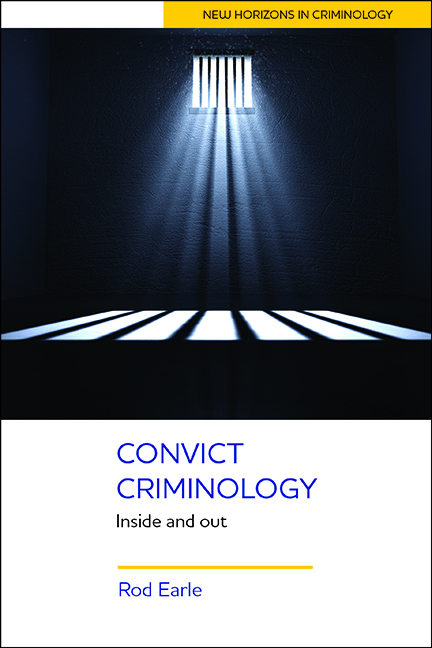two - Born in the USA: early origins of convict criminology
Published online by Cambridge University Press: 05 April 2022
Summary
GROSS MORAL TURPITUDE
When Oscar Wilde first went to the USA in 1882 he was asked at customs if he had anything to declare and he allegedly replied ‘Nothing but my genius.’ It wouldn't be quite as simple as that for a convict criminologist, even if they were to be as extraordinarily wonderful as Wilde. Several months before my first trip to the USA to attend the American Society of Criminology annual conference in Atlanta, Georgia, I submitted my application for a visa to the US Embassy in London. It was July 2007. Not content with the usual Criminal Records Bureau (CRB) enhanced disclosure form, the embassy required me to pay for its own independent procedure commissioned through the Metropolitan Police. I duly complied and the completed documentation earned me an invitation to an interview at the Embassy. For other members of the British contingent of criminologists who travel to the USA for such an occasion, the procedure is relatively straightforward. The visa waiver agreement allows them to sweep through customs, passport in hand, declaring their genius only if they see fit.
I fretted about the interview at the embassy, and fantasised gloomily about the bright lights that would be shone in my face, the traps and trick questions I might stumble into. What was the test? How could I pass? I recalled the story told to me by a friend, a political activist, who had travelled to Los Angeles in the early 1980s for a conference, only to be stopped at customs after she obligingly told them that she worked for the London Underground. She was held for several hours while they searched their database of subversive organisations with that recklessly frank piece of information. They had associated London's subway system with a rare species of left wing revolutionary organisation in the US, The Weather Underground, sometimes referred to as The Weathermen, to confuse British customs presumably.
The US Embassy is an imposing building, and at the time of my visit, ringed with concrete, anti-attack bollards. Like at an airport, there were complex electronic screens to pass through, involving the removal of shoes, belts and all electronica.
- Type
- Chapter
- Information
- Convict CriminologyInside and Out, pp. 17 - 36Publisher: Bristol University PressPrint publication year: 2016



